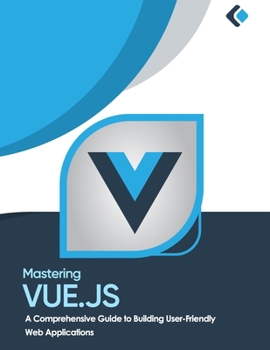Mastering Vue.js: A Comprehensive Guide to Building User-Friendly Web Applications
Are you looking to enhance your web development skills and build dynamic, user-friendly applications with Vue.js? Look no further! "Mastering Vue.js" is the book for you. This comprehensive guide covers all the essentials of Vue.js, starting with the basics and gradually diving into more advanced topics. It provides a clear and concise explanation of the framework's features and components, including the reactivity system, templates, directives, components, and more. With this book in hand, you'll have everything you need to build professional-quality web applications using Vue.js. The author has done an excellent job of breaking down complex concepts into easy-to-digest explanations, making it an ideal resource for both beginners and experienced developers alike. Whether you're a front-end developer looking to expand your skill set or a full-stack developer seeking to build better applications, this book is the perfect resource to help you achieve your goals. With practical examples and hands-on exercises, you'll be able to apply what you've learned in real-world scenarios and see the results for yourself. So why wait? Invest in your future as a web developer today and purchase "Mastering Vue.js". This book is an essential resource for anyone looking to take their Vue.js skills to the next level.
Format:Paperback
Language:English
ISBN:B0C2RW1V2S
ISBN13:9798391801313
Release Date:April 2023
Publisher:Independently Published
Length:142 Pages
Weight:0.76 lbs.
Dimensions:0.3" x 8.5" x 11.0"
Based on Your Recent Browsing
Customer Reviews
5 customer ratings | 5 reviews
There are currently no reviews. Be the first to review this work.




















